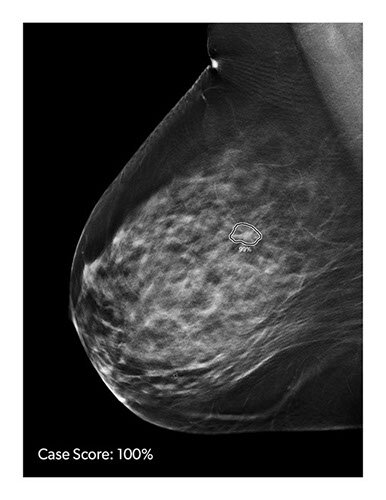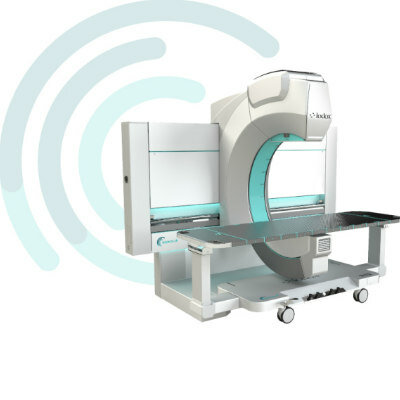AI Tool for PET Imaging Enables Fully Automated Detection and Evaluation of Brain Tumors
|
By MedImaging International staff writers Posted on 18 Oct 2023 |

Positron Emission Tomography (PET) is becoming a critical tool for diagnosing brain tumors, adding to the insights given by traditional MRI scans. In recent years, numerous studies have revealed the utility of evaluating metabolic tumor volume to gauge the effectiveness of treatments for brain tumors. However, such evaluations usually take a lot of time and hence are not commonly performed in regular clinical settings. Now, a new artificial intelligence (AI) tool offers an automated, simple, and objective method to identify and assess brain tumors. Designed to work with amino acid PET scans, this deep-learning algorithm can also quickly evaluate a patient’s response to treatment with the same level of accuracy as a seasoned doctor.
This deep-learning-based segmentation algorithm for the comprehensive and automated volumetric assessment of amino acid PET scans has been developed by a team of researchers the Institute of Neuroscience and Medicine (INM, Juelich, Germany). The researchers have also tested its efficacy for evaluating treatment responses in patients with gliomas. The team analyzed 699 18F-FET PET scans (either initial or follow-up) taken from 555 individuals with brain tumors. The algorithm was configured using both training and test datasets, and the changes in metabolic tumor volumes were measured.
Moreover, the algorithm was applied to data from a recently released 18F-FET PET study that examined the treatment responses in glioblastoma patients who underwent adjuvant temozolomide chemotherapy. The algorithm's evaluation was then compared to the judgment of a skilled physician, as documented in that study. Within the test dataset, the algorithm accurately identified 92% of the lesions that showed increased uptake and 85% of the lesions with isometric or hypometabolic uptake. The algorithm-detected changes in metabolic tumor volume significantly aligned with predictions of disease-free and overall survival rates, confirming the observations made by the physician. To aid its adoption in clinical settings, this segmentation algorithm is openly accessible and can be run on a standard GPU-equipped computer in less than two minutes without requiring any preprocessing.
“These findings highlight the value of the deep learning-based segmentation algorithm for improvement and automatization of clinical decision-making based on the volumetric evaluation of amino acid PET,” said Philipp Lohmann, PhD, assistant professor (Habilitation) in Medical Physics, and team leader for Quantitative Image Analysis & AI at the INM. “The segmentation tool developed in our study could be an important platform to further promote amino acid PET and to strengthen its clinical value, which may give brain tumor patients access to important diagnostic information that was previously unavailable or difficult to obtain.”
Related Links:
INM
Latest Nuclear Medicine News
- New SPECT/CT Technique Could Change Imaging Practices and Increase Patient Access
- New Radiotheranostic System Detects and Treats Ovarian Cancer Noninvasively
- AI System Automatically and Reliably Detects Cardiac Amyloidosis Using Scintigraphy Imaging
- Early 30-Minute Dynamic FDG-PET Acquisition Could Halve Lung Scan Times
- New Method for Triggering and Imaging Seizures to Help Guide Epilepsy Surgery
- Radioguided Surgery Accurately Detects and Removes Metastatic Lymph Nodes in Prostate Cancer Patients
- New PET Tracer Detects Inflammatory Arthritis Before Symptoms Appear
- Novel PET Tracer Enhances Lesion Detection in Medullary Thyroid Cancer
- Targeted Therapy Delivers Radiation Directly To Cells in Hard-To-Treat Cancers
- New PET Tracer Noninvasively Identifies Cancer Gene Mutation for More Precise Diagnosis
- Algorithm Predicts Prostate Cancer Recurrence in Patients Treated by Radiation Therapy
- Novel PET Imaging Tracer Noninvasively Identifies Cancer Gene Mutation for More Precise Diagnosis
- Ultrafast Laser Technology to Improve Cancer Treatment
- Low-Dose Radiation Therapy Demonstrates Potential for Treatment of Heart Failure
- New PET Radiotracer Aids Early, Noninvasive Detection of Inflammatory Bowel Disease
- Combining Amino Acid PET and MRI Imaging to Help Treat Aggressive Brain Tumors
Channels
Radiography
view channel
Novel Breast Imaging System Proves As Effective As Mammography
Breast cancer remains the most frequently diagnosed cancer among women. It is projected that one in eight women will be diagnosed with breast cancer during her lifetime, and one in 42 women who turn 50... Read more
AI Assistance Improves Breast-Cancer Screening by Reducing False Positives
Radiologists typically detect one case of cancer for every 200 mammograms reviewed. However, these evaluations often result in false positives, leading to unnecessary patient recalls for additional testing,... Read moreMRI
view channel
PET/MRI Improves Diagnostic Accuracy for Prostate Cancer Patients
The Prostate Imaging Reporting and Data System (PI-RADS) is a five-point scale to assess potential prostate cancer in MR images. PI-RADS category 3 which offers an unclear suggestion of clinically significant... Read more
Next Generation MR-Guided Focused Ultrasound Ushers In Future of Incisionless Neurosurgery
Essential tremor, often called familial, idiopathic, or benign tremor, leads to uncontrollable shaking that significantly affects a person’s life. When traditional medications do not alleviate symptoms,... Read more
Two-Part MRI Scan Detects Prostate Cancer More Quickly without Compromising Diagnostic Quality
Prostate cancer ranks as the most prevalent cancer among men. Over the last decade, the introduction of MRI scans has significantly transformed the diagnosis process, marking the most substantial advancement... Read moreUltrasound
view channel
Deep Learning Advances Super-Resolution Ultrasound Imaging
Ultrasound localization microscopy (ULM) is an advanced imaging technique that offers high-resolution visualization of microvascular structures. It employs microbubbles, FDA-approved contrast agents, injected... Read more
Novel Ultrasound-Launched Targeted Nanoparticle Eliminates Biofilm and Bacterial Infection
Biofilms, formed by bacteria aggregating into dense communities for protection against harsh environmental conditions, are a significant contributor to various infectious diseases. Biofilms frequently... Read moreGeneral/Advanced Imaging
view channel
New AI Method Captures Uncertainty in Medical Images
In the field of biomedicine, segmentation is the process of annotating pixels from an important structure in medical images, such as organs or cells. Artificial Intelligence (AI) models are utilized to... Read more.jpg)
CT Coronary Angiography Reduces Need for Invasive Tests to Diagnose Coronary Artery Disease
Coronary artery disease (CAD), one of the leading causes of death worldwide, involves the narrowing of coronary arteries due to atherosclerosis, resulting in insufficient blood flow to the heart muscle.... Read more
Novel Blood Test Could Reduce Need for PET Imaging of Patients with Alzheimer’s
Alzheimer's disease (AD), a condition marked by cognitive decline and the presence of beta-amyloid (Aβ) plaques and neurofibrillary tangles in the brain, poses diagnostic challenges. Amyloid positron emission... Read more.jpg)
CT-Based Deep Learning Algorithm Accurately Differentiates Benign From Malignant Vertebral Fractures
The rise in the aging population is expected to result in a corresponding increase in the prevalence of vertebral fractures which can cause back pain or neurologic compromise, leading to impaired function... Read moreImaging IT
view channel
New Google Cloud Medical Imaging Suite Makes Imaging Healthcare Data More Accessible
Medical imaging is a critical tool used to diagnose patients, and there are billions of medical images scanned globally each year. Imaging data accounts for about 90% of all healthcare data1 and, until... Read more
Global AI in Medical Diagnostics Market to Be Driven by Demand for Image Recognition in Radiology
The global artificial intelligence (AI) in medical diagnostics market is expanding with early disease detection being one of its key applications and image recognition becoming a compelling consumer proposition... Read moreIndustry News
view channel
Bayer and Google Partner on New AI Product for Radiologists
Medical imaging data comprises around 90% of all healthcare data, and it is a highly complex and rich clinical data modality and serves as a vital tool for diagnosing patients. Each year, billions of medical... Read more





















